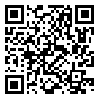Volume 9, Issue 6 (2019)
LRR 2019, 9(6): 241-265 |
Back to browse issues page
Download citation:
BibTeX | RIS | EndNote | Medlars | ProCite | Reference Manager | RefWorks
Send citation to:



BibTeX | RIS | EndNote | Medlars | ProCite | Reference Manager | RefWorks
Send citation to:
hassanpourdehnavi A, Taki G, Akbari S. Analysis of Abraham's Debates in the Holy Quran Based on Pragma-Dialectic Approach. LRR 2019; 9 (6) :241-265
URL: http://lrr.modares.ac.ir/article-14-4626-en.html
URL: http://lrr.modares.ac.ir/article-14-4626-en.html
1- PhD Student, Sistan & Baluchistan University, Iran.
2- English Department, Humanities Faculty, Sistan & Baluchestan University, Iran , giti_taki2020@yahoo.com
3- Associate Professor in Arabic Literature, Ferdowsi University, Iran
2- English Department, Humanities Faculty, Sistan & Baluchestan University, Iran , giti_taki2020@yahoo.com
3- Associate Professor in Arabic Literature, Ferdowsi University, Iran
Abstract: (4575 Views)
The present article aims to investigate and compare the argumentative discourse of Abraham’s debates with Nimrod, Azar, Star-worshipers and Idolaters in the Holy Qur'an. To this end, at first, the Persian translations of Abraham argumentative discussions with the opponents have been identified and then they have been analyzed based on Pragmatic-dialectical approach.This approach is composed of two parts: the dialectical and the pragmatic section. According to this approach, each argumentative dialogue has four stages: confronting, opening, argumentative and concluding features. In fact, the protagonist goes through these stages to defend his standpoint and tries to persuade the antagonist. Considering Abraham’s debates with his opponents on the one hand, and pragma-dialectical approach other hand, two questions have been the focus of attention in this article:1. Are these four stages of pragma-dialectical approach and the ways of persuading the audience different in Abraham’s debates? 2. Are the speech acts used in these debates the same? The related hypotheses are: 1. these four stages of pragma-dialectical approach and the ways of persuading the audience are not different in Abraham debates. 2. The speech acts used in these debates are not the same.
Research methodology is descriptive- analytical. The translations of Abraham’s debates with Nimrod, Azar , Star worshipers and Idolaters in the Holy Qur'an have been extracted from Makarem (1378, 12387) and Husseini (1382) and then have been analyzed and compared. Out of 167 Ayahs that have narrated Abraham‘s story in the Holy Quran, 61 Ayahs show Abraham’s debates. According to these debates, 105 speech acts were studied in terms of argumentative stages (confronting, opening, argumentative and concluding) and also the frequency of speech acts according to Searle (1969) was identified.
The research findings showed that from 105 speech acts in the debates, 86 of them are of Abraham and 19 cases belong to the opponents. In addition, the study showed that the argumentative stages of Abraham debates vary in these debates. Abraham debate with Star worshipers is different from other debates in confronting and opening stages. In this way difference in opinion is hidden in confronting stage and gradually it becomes clear in the opening and argumentative stages. Furthermore, in confronting stage the standpoint is single sided .Convincing the idolaters and Star worshipers, Abraham has made use of a“dramatic method”. In the pragmatic section, frequency and type of speech acts used by Abraham are different in the debates. In addition, the current research showed that this approach should be appropriately modified if it aims to investigate the argumentative discourse of the prophets in the Holy Qur'an.
Research methodology is descriptive- analytical. The translations of Abraham’s debates with Nimrod, Azar , Star worshipers and Idolaters in the Holy Qur'an have been extracted from Makarem (1378, 12387) and Husseini (1382) and then have been analyzed and compared. Out of 167 Ayahs that have narrated Abraham‘s story in the Holy Quran, 61 Ayahs show Abraham’s debates. According to these debates, 105 speech acts were studied in terms of argumentative stages (confronting, opening, argumentative and concluding) and also the frequency of speech acts according to Searle (1969) was identified.
The research findings showed that from 105 speech acts in the debates, 86 of them are of Abraham and 19 cases belong to the opponents. In addition, the study showed that the argumentative stages of Abraham debates vary in these debates. Abraham debate with Star worshipers is different from other debates in confronting and opening stages. In this way difference in opinion is hidden in confronting stage and gradually it becomes clear in the opening and argumentative stages. Furthermore, in confronting stage the standpoint is single sided .Convincing the idolaters and Star worshipers, Abraham has made use of a“dramatic method”. In the pragmatic section, frequency and type of speech acts used by Abraham are different in the debates. In addition, the current research showed that this approach should be appropriately modified if it aims to investigate the argumentative discourse of the prophets in the Holy Qur'an.
Keywords: Key words: the Holy Quran, argumentative discourse, pragma- dialectic approach, speech acts, Abraham’s debates
Send email to the article author
| Rights and permissions | |
 |
This work is licensed under a Creative Commons Attribution-NonCommercial 4.0 International License. |







